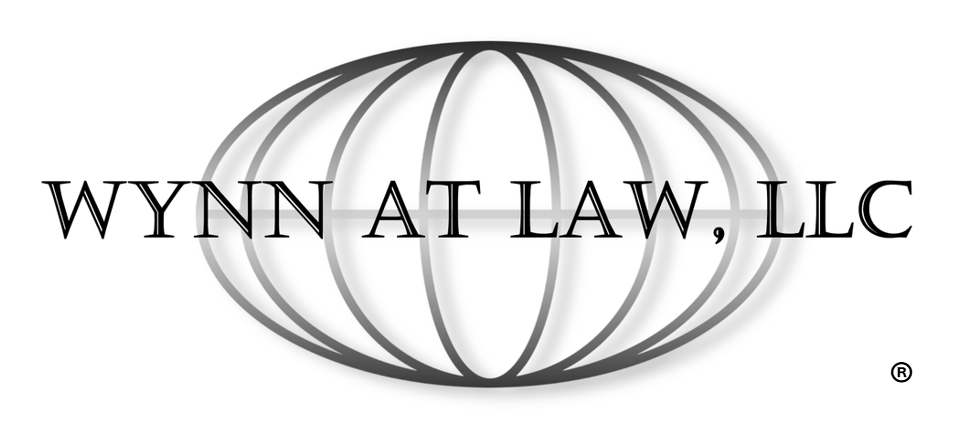People prepare for the future throughout their entire lives. Schooling, careers, housing, and retirement are common items most adults painstakingly plan out. However, creating a plan in the event of their death usually gets pushed to the bottom of the to-do list. No one enjoys thinking about their passing and then what happens after they’re gone. Estate planning may not be fun to think about; however, that doesn’t make it any less essential. At some point, a written plan that details how you would like your assets handled in the event of your death should be pushed to the number one spot on your to-do list. This process can be overwhelming, and an estate planning attorney can guide you through the steps and find a plan that works for your individual needs. The experienced attorneys at Wynn at Law, LLC work with clients to outline their wishes and discuss options to formulate a personalized formal estate plan

What is Estate Planning?
An estate plan clearly outlines how you want your assets handled after you pass, and who is in charge of making sure your wishes are followed. Creating an estate plan limits confusion and disputes, but more importantly, it ensures your loved ones are taken care of according to your wishes. Your loved ones can also use the plan if you become unable to handle healthcare and financial matters during your lifetime.
How Do I Create an Estate Plan?
There are several steps to creating a comprehensive estate plan. These steps include meeting with an attorney experienced in estate planning to discuss your concerns and needs to figure out which estate planning tools fit your personal needs, have those documents drafted and the execute your estate plan. A formal estate plan usually includes a Last Will and Testament, Power of Attorney for Finances, Power of Attorney for Health Care. Additional estate planning documents may include a Revocable Living Trust, Living Will, Transfer on Death Deeds, and more.
Last Will and Testament
In essence, a will is a legal document. This legal document ensures that your wishes regarding the things you own (and are entitled to) are carried out after you pass. Once your will is completed, it must be executed by a process of legal formalities; otherwise, it may be invalid and not legally binding after your death.

What Are the Benefits to Writing My Will?
There are many benefits of planning a will or creating an estate plan for your loved ones to use at the time of your death. A few of the items a Last Will and Testament will include are:
- A personal representative
- The care of minors
- The distribution of the assets in your estate
- If beneficiaries receive their inheritance in a trust or outright
Your passing may bring high emotions and disputes among your relatives over an inheritance. The distribution of the assets you leave behind is difficult to contest if there is an executed will. Without estate planning, you lose the opportunity to alleviate some of the grieving process for your loved ones. The benefits of planning a will are indisputable. To ensure that your will is prepared and executed appropriately, Wynn at Law, LLC, can assist you every step of the way.

Power of Attorney for Finances
A power of attorney is a legal document that assigns a person of your choice to manage your financial affairs if you become unable to do so. For example, a power of attorney can pay expenses and make transactions that protect your assets while you are incapacitated.
Power of Attorney for Health Care
A Power of Attorney for Health Care is a legal document that appoints a decision-maker for your medical and health care treatment if you can no longer do so. It can also outline your beliefs and wishes regarding faith, the extent of treatment, and life-sustaining treatments.
Trusts
A trust is a legal entity that hold assets on behalf of a beneficiary or beneficiaries. Trusts are managed by trustees who legally own the property, while the trust beneficiaries are equitable owners. The trustee can be a single person, multiple people, a corporate trust, or a bank. Trusts do not have to be processed in court, meaning that they avoid many of the costs and delays associated with carrying out the instructions of a will. As a result, trusts are popular with parents who wish to ensure their trustee will give their assets to their children once they reach a specified age. As you can see, there are quite a few steps to creating an estate plan, and obtaining legal counsel is always advised to make sure you have everything covered.
Schedule a Consultation with an Estate Planning Lawyer at Wynn at Law, LLC
Estate planning is one of the most thoughtful and considerate things you can do for your loved ones. Even if you do not feel that you have assets of significant financial value, everyone has something of great sentimental value in their possession. Wynn at Law, LLC, is here to assist with the process. At Wynn At Law, LLC, our attorneys will review your situation and provide you with practical legal advice. The goal is to assist you in completing a comprehensive estate plan that gives you peace of mind knowing that you will have taken care of your loved ones. For inquiries, contact us today at (262) 725-0175 or visit www.wynnatlaw.com. Wynn at Law, LLC has offices in Delavan, Lake Geneva, and Salem Lakes and serves all of Southeastern Wisconsin.


